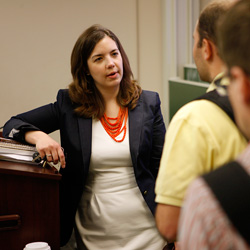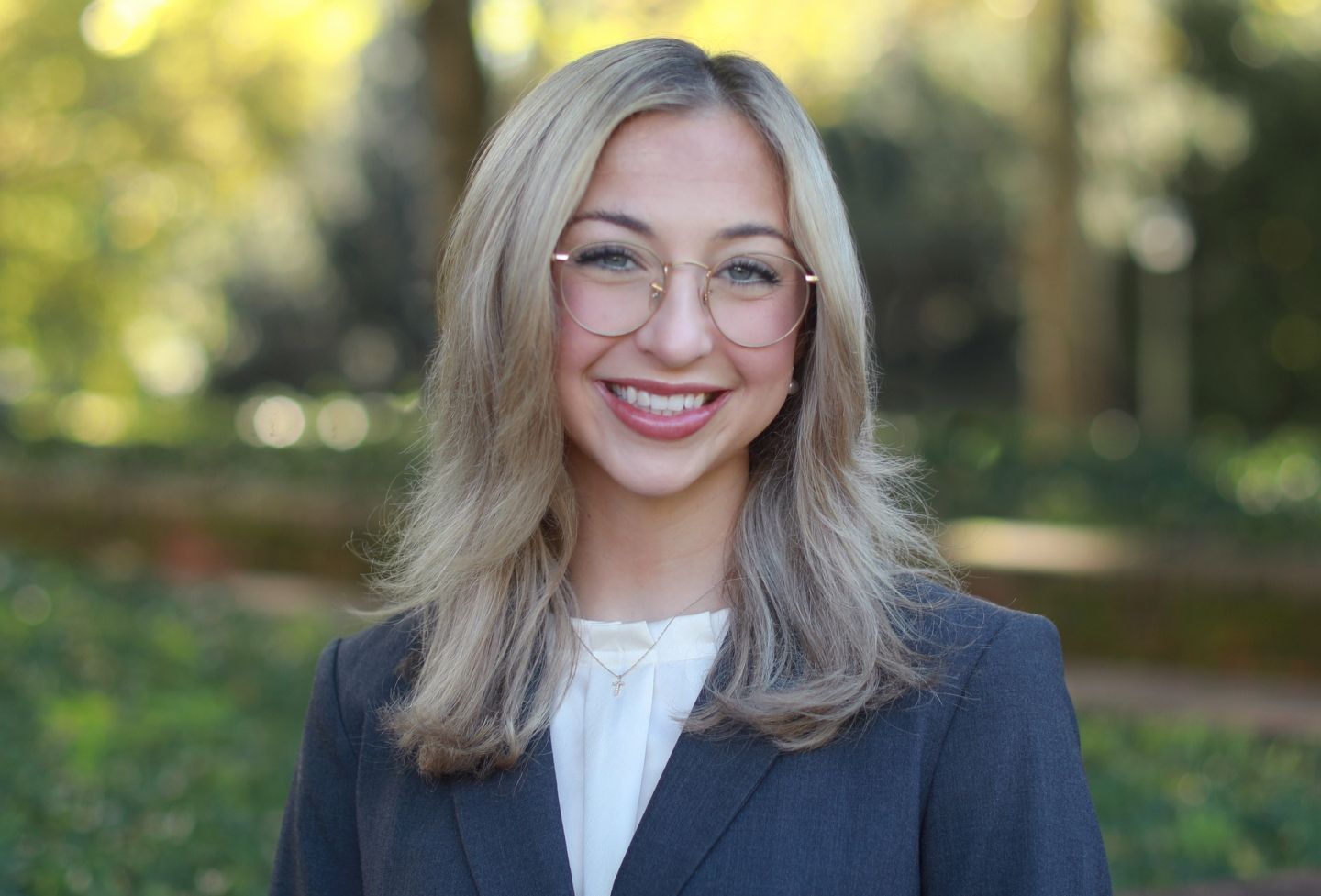A professor of law, a Harvard Ph.D. candidate and a law firm partner are just three of the successful University of Virginia School of Law alumni who gained a richer legal education from the J.D.-M.A. Program in History.
"The J.D.-M.A. program was where I first learned what it meant to be a legal scholar — how to ask the right questions, frame a paper in the best possible way, and how to keep digging for answers even if you hit some dead-ends along the way," said Paul Crane, a 2007 UVA Law graduate and current resident faculty member of the University of Richmond School of Law. A former U.S. Supreme Court clerk to Chief Justice John Roberts, Crane practiced appellate litigation for several years before teaching criminal law.
The dual-degree program, offered in association with the UVA Corcoran Department of History, allows students to earn both a J.D. and an M.A. in three years — and in 18 fewer credit hours than if the two degrees were pursued separately. More than 90 alumni have graduated from the program since it began more than 40 years ago.
"That program, and the mentors I was so lucky to pick up along the way, have had an indelible impact on my legal career," Crane said, citing influences such as now-Dean Risa Goluboff, a renowned civil rights historian, and recently retired history professor Chuck McCurdy, who also taught at the Law School for many years.
"It definitely influenced me to become a law professor," Crane said.
Current faculty in the program include G. Edward White, whose recent "Law in American History" volumes look at legal history through the lens of progress and modernity; Saikrishna Prakash, who recently published “Imperial from the Beginning: The Constitution of the Original Executive,” about presidential power; and junior faculty such as Cynthia Nicoletti, who is taking a fresh look at how Americans struggled with the constitutionality of secession in the wake of the Civil War — among many others. (Faculty list)
The program is administered by Charles Barzun, who writes on the history of legal thought.
"Legal history at UVA has been a particular strength of the Law School for some time," Barzun said of the program, which has existed since 1975, when McCurdy (now the namesake of a new fellowship) first ran it. "In fact, people even speak of the 'Virginia school' of legal history, which might be described as the view that denies that the history of legal and constitutional development has been driven exclusively by politics."

In addition to curricular offerings, lectures and panel discussions, the program sponsors a monthly lunch workshop, in which degree candidates participate and even present drafts of their M.A. theses.
Elizabeth Katz, a 2009 J.D.-M.A. graduate of the Law School and former clerk for Judge J. Frederick Motz on the U.S. District Court for the District of Maryland, is a Ph.D. candidate in the History Department at Harvard University. She specializes in U.S. legal history and is writing her dissertation on how the 20th-century creation, spread and evolution of family courts was shaped by the personal and professional motives of lawyers, judges and probation officers.
"The J.D.-M.A. program constituted the core of my academic life at the Law School and has proven invaluable since," Katz said. "While I was a law student, the joint-degree program added structure and purpose to my course selection, as well as enhanced my understanding of material in classes that were not focused on history."
Katz said she has formed strong and continuing relationships with UVA Law faculty who have mentored her, including Goluboff, McCurdy and Kerry Abrams, a family law and immigration expert who blends history into her scholarship.
"I’ve also benefited from a broader collegial and supportive network of legal historians with UVA ties, many of whom gathered from around the country for the 'Legacy of Charles W. McCurdy' conference last November," Katz said. "I hope to follow in my mentors' footsteps."
But not everyone who earns the J.D.-M.A. pursues a scholarly path.
"I enrolled in the program just because I was interested in the subject matter and at the time contemplated a career in academia," said Mark Stancil, a 1999 law graduate and partner with the law firm Robbins, Russell, Englert, Orseck, Untereiner & Sauber. Stancil has also co-taught the Supreme Court Litigation Clinic several times. "Obviously I didn't pursue an academic career, but I suspect that it helped me get a clerkship with Chief Justice William H. Rehnquist. I think he found my having an M.A. in history interesting." (Rehnquist was an author of a number of books on legal history.)
Stancil said even though he doesn't write books or teach full-time, his clients benefit from the knowledge he gained. For example, he said, his understanding of New Deal legislation proved useful to a case he worked on recently.
"Having an understanding of how the law evolved is enormously beneficial," he said.
Barzun agreed that's the main selling point of the program. While teaching of all legal doctrine inevitably builds on the past, legal historians explore a broader view, he said, including how intellectual, political and social influences affect the law.
"The aim of the program is for its graduates, whatever their future career plans, to leave the Law School with a deeper understanding of law than they would have been able to secure through a more conventional legal education," he said.
Founded in 1819, the University of Virginia School of Law is the second-oldest continuously operating law school in the nation. Consistently ranked among the top law schools, Virginia is a world-renowned training ground for distinguished lawyers and public servants, instilling in them a commitment to leadership, integrity and community service.


